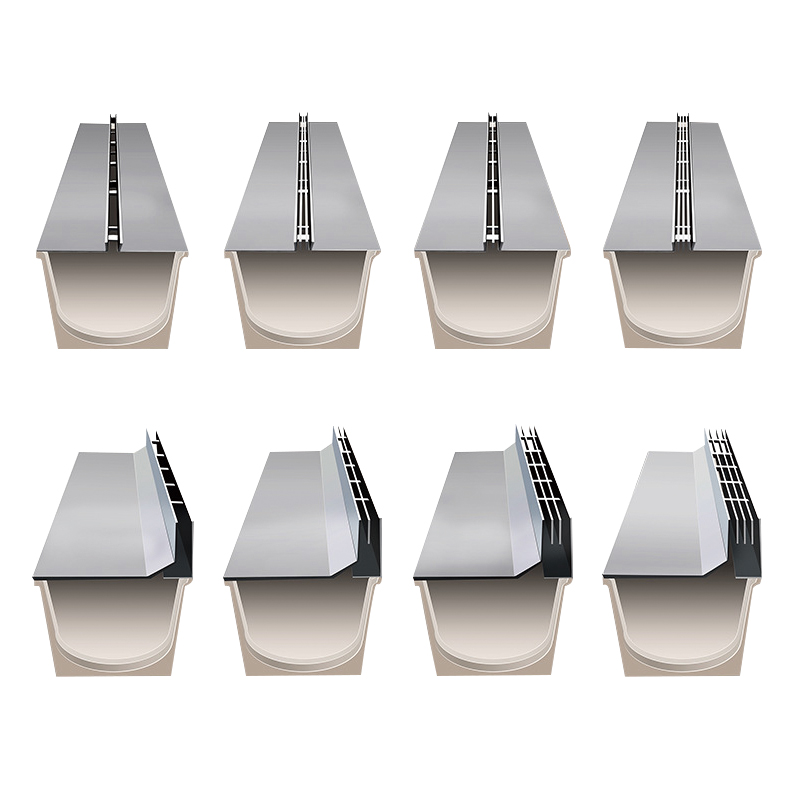Taurus Trench Drain System
We offers comprehensive product functionalities and support services tailored to every aspect of your drainage project needs. From initial design consultations to simplified installations and post-completion performance, we ensure satisfaction at every step. Whether it's optimizing drainage for a specific site or meeting unique project requirements, our expertise guides you to ideal solutions. Explore our diverse product offerings and let us assist you in achieving the perfect drainage system for your application.
Taurus drain systems are widely used in various applications, including residential, commercial, and industrial settings. They are commonly found in areas such as driveways, parking lots, walkways, patios, and landscape gardens to effectively manage surface water runoff and prevent flooding. Additionally, drain systems are essential in agricultural fields, sports fields, and public infrastructure like roads and highways to maintain proper drainage and prevent soil erosion.

Types We Have

Steel Trench Drain Systems
Steel Trench Drain Systems are customizable drainage systems suitable for various environments. They are commonly used in commercial and industrial settings such as parking lots, factory floors, and storefronts. These systems can be paired with different types of channels and come in various load ratings, such as A15, B125, and C250. This means they can be tailored to meet specific requirements, ensuring they can withstand the corresponding loads from vehicles and pedestrians. Additionally, these systems are corrosion-resistant, easy to maintain, and effectively manage water drainage, enhancing ground safety.
How To Install Trench Drain System?
1. Planning and Design: Start by determining the location and size of the channel drainage system, taking into account factors such as the terrain, water flow direction, and rainfall amount to ensure effective drainage.
2. Marking the Location: se stakes or markings to accurately identify the position where the channel drainage will be installed, ensuring proper layout of the system.
3. Excavating the Trench: Use excavators or shovels to dig the trench according to the marked location of the channel drainage. The excavation size is typically larger than the dimensions of the drainage channel.
4. Pouring the Trench Base: Pour a stable and supportive base for the channel drainage by using cement concrete that meets the required load-bearing standards.
5. Installing the Drainage Channel: Install the sections of the drainage channel into the trench, ensuring they are connected to the drainage system as per the design requirements. The end of the channel should be connected to a sewer or other drainage facility.
6. Securing the Channel: Use concrete or other materials to pour side wings along the edges of the channel drainage at a height matching the ground level, preventing displacement and water seepage.
7. Waterproof Treatment: If necessary, use asphalt silicone or waterproof sealants to treat the joints and gaps between adjacent channel drainage sections.
8. Cleaning and Securing the Cover: Clean any debris from inside the channel drainage before installing the cover, ensuring that the drainage system is fully operational.
Display
We have dedicated production lines for landscaping materials, focusing on the research, production, and sales of products such as drain systems and lawn edging. Apart from custom-made products in stainless steel, most of our products are modular prefabricated items.
We maintain a small inventory of prefabricated products to meet customer demands. The production cycle for custom-made products typically ranges from 5 to 10 days, for example, for manufacturing 300 meters of cover plates. After production and passing quality inspection, our products undergo rigorous packaging, including shrink-wrapping and securing with straps, to ensure they remain undamaged during transportation.


















